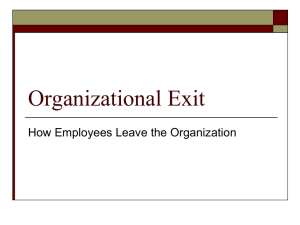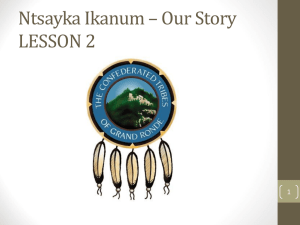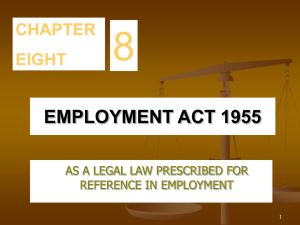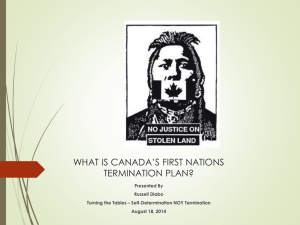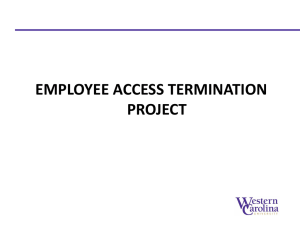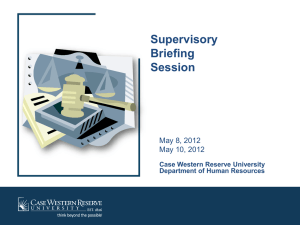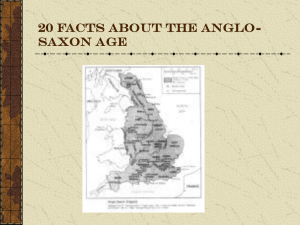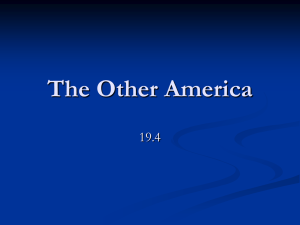Lesson 05 () - The Confederated Tribes of Grand Ronde
advertisement
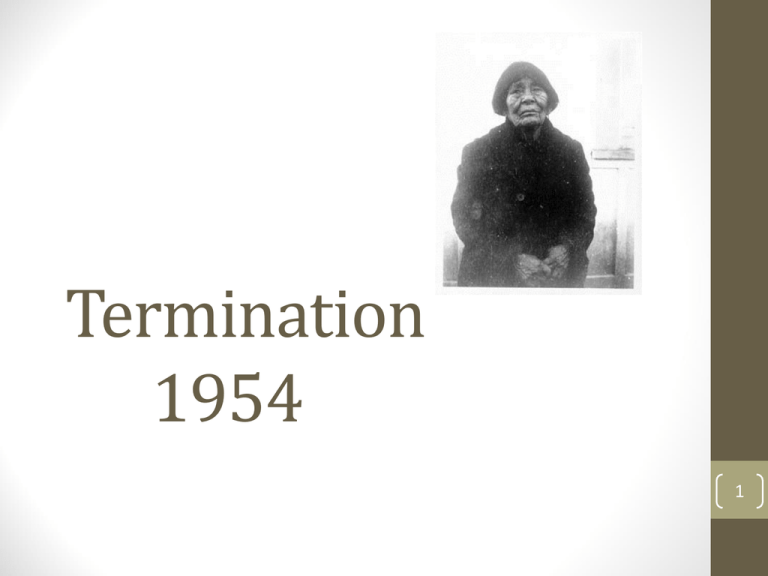
Termination 1954 1 1954 Western Oregon Indian Termination Act • On August 13, 1954, Public Law 588, Western Oregon Indian Termination Act was signed into law by President Dwight D. Eisenhower. • This act effectively terminated the Tribes’ federal recognition and removed all obligations that had been negotiated through treaties between the United States government and the Confederated Tribes of Grand Ronde. • 63 tribes total were terminated in Oregon. More tribes were terminated in Western Oregon than any other region of the U.S. 2 Tribal vs. Government Perspectives on Agreement of Termination Common histories state that Western Oregon Tribes agreed to termination. However, the Tribes did not agree to termination. Oral accounts from Grand Ronde Elders stated that the Tribe did not consent. 3 Termination Without Consent • Tribal Elders stated that they had no knowledge of hearings regarding Termination in Washington, D.C. • No vote about the 1953 termination draft document ever occurred and Indian Superintendent E. Morgan Pryse admitted that there were voices in opposition. 4 Termination • The Tribe lost all its treaty rights and land. • Tribal members scattered throughout the Northwest. • Some Tribal members remained in the Grand Ronde area. 5 Termination • “It changed our lives. Things weren’t the same after that.” • “At the stroke of a pen they wiped us away.” - Margaret Provost, Grand Ronde Tribal Elder 6 Termination ►Upon termination, the Reservation was closed in 1956 and services were withdrawn. ►Termination caused great hardships for many Oregon Indians including the Grand Ronde. ►The impact of termination is still felt today as many cultural traditions were lost during this time. The close bond of families was broken and relationships damaged. 7 Things we didn’t lose during Termination • Some tribal members still practiced fishing rights. The treaties did not address fishing rights and termination did not address fishing rights. • Tribal members retained fishing and hunting rights during the Termination period. • Some members did retain their culture and their association with the families that remained in Grand Ronde. • Some tribal members were able to purchase their property and stay in Grand Ronde. • The Tribe had the cemetery that remained community property. They had administrative rights over that property. 8 Video on Termination • http://www.youtube.com/watch?v=QyvKAjKBLOk Students: Write down at least two things learned from the video while it is playing. 9 Discussion/Critical Thinking Questions • What did you learn from the video? • What do you think it would be like to be told you are no longer an Indian? • How would it feel to have your family scattered, living apart from one another? • Why do you think the Federal government terminated the Tribes and did they think about the impact it would have before doing so? 10 After Termination • Terminated Indians were literally like new immigrants to America, with no resources, no savings, and little help from the government. The net payoff from the sale of Grand Ronde lands was $35 per person. • Most Tribal members were forced to relinquish their allotments as they did not have the funds to buy them from the government. 11 Post Termination Era 1956-1983 • In this era, the many cultures and languages of the Grand Ronde Tribe declined. With the loss of the Reservation, the community lost its community center and many became adrift in society. • Poverty, substance abuse, and all of the associated problems were normal in Tribal families, worse than ever before. • Some families found ways to preserve their culture and history, others were lost to the Tribe forever. 12

